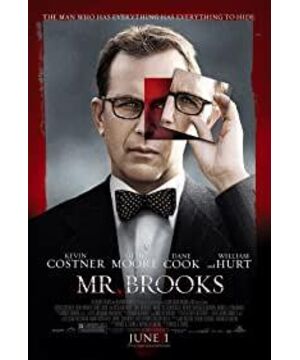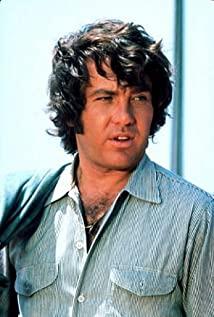The audience seems to be used to the routine of "A has always been a good person A, until one day he finds that B is actually himself, and panics and gets involved in a personality struggle" routine. As for Marshall and Earl, it can be seen as a parallel dialogue between two sets of psychological mechanisms of a person. Out of realistic morality and guilt, Earl has long been striving to achieve self-repression of the id, while Marshall, who usually instigates murder, speaks for the real desire and pleasure. They are not fundamentally different, but they are at different levels of consciousness and act in different principles. Facts have proved that the deep needs of the two people are the same. They are both intelligent and elegant. Earl had suppressed Marshall for two years with the help of club activities. At the beginning of the story, Marshall made a ghostly comeback. The film does not neglect to deal with the changes in the relationship between the two people: Earl avoids rejection at first, but it does not take long to be with Marshall. Laughing happily, like a confidant brother drinking wine. At the end of the day, everyone has a demon inside of them. Some people fought against him to the end, some were uncertain, some compromised with him, some shook hands with him, and some conspired with him.
Some enthusiastic viewers think that the film lacks strong conflict and thus loses the power of narrative. In fact, the core conflict of the film is not in the obstacles imposed on Earl by the outside world (including the policewoman and the idiot who volunteered to be a killer), but in the Earl's heart: The desire to wash hands and return to tranquility VS the desire to kill deep in the blood. The incident of his daughter's crime prompted Earl to become a killer, and he took up the butcher's knife under the dissuasion of Marshall. His daughter's pregnancy prompted him to abandon the perfect plan to evaporate, because he wanted to see the baby grow up, he wanted to maintain a good family, and he wanted to see a peaceful ending. The result of this struggle was that Earl was ultimately unable to free himself from his inner struggle. He could only fall deeply into it, praying constantly to the gods who had abandoned him on the edge of a lonely spiritual cliff, and even his beloved daughter became him. The devil in the dream. The tranquil vision is doomed to be impossible, and he will continue his life in the rest and struggle.
The clues of the female police officer did not interact well with the main line. The tension between Earl and the female police officer did not form until the end, but the reason why Earl was particularly concerned about this woman must have something to do with his daughter, the policewoman and Earl's daughter. They are both rich second-generation, not worried about money or future, but in the policewoman he saw the belief and fighting spirit that his daughter lacked, and he was even more afraid that the way her daughter realized her "ambition" was to become a stupid habitual murderer commit. He felt that the angel in his heart was about to move, and that unease was the source of the last nightmare.
The easiest way to get the audience to identify with a bad guy in the traditional sense is to assume that he is deeply in love with one of his family members (either his wife or his daughter), and the film also adopts this method. Unfortunately, the clues are intertwined and scattered. If I were a director or screenwriter, I would probably do everything possible to intensify the emotional tension between Earl and his daughter. In the end we find that no one in the film can really get into Earl's heart, no one can really understand him, and the audience can't really understand him, he is always that lonely and elegant dangerous man. Killers can be detached and transcend everything, but this kind of crime film set by the protagonist is best to show enough amazing killing techniques and crime scenes, but this Mr. Brooks has a face that reminds you "I'm very calm and cool" at all times Other than that, it seems that there are not many stunts left. He is too mature and cool, wraps himself too well, and the result is a little less real, and it is difficult to really impress people.
Despite this, I still like the temperament of this film, which is very light, cold and restrained.
View more about Mr. Brooks reviews











